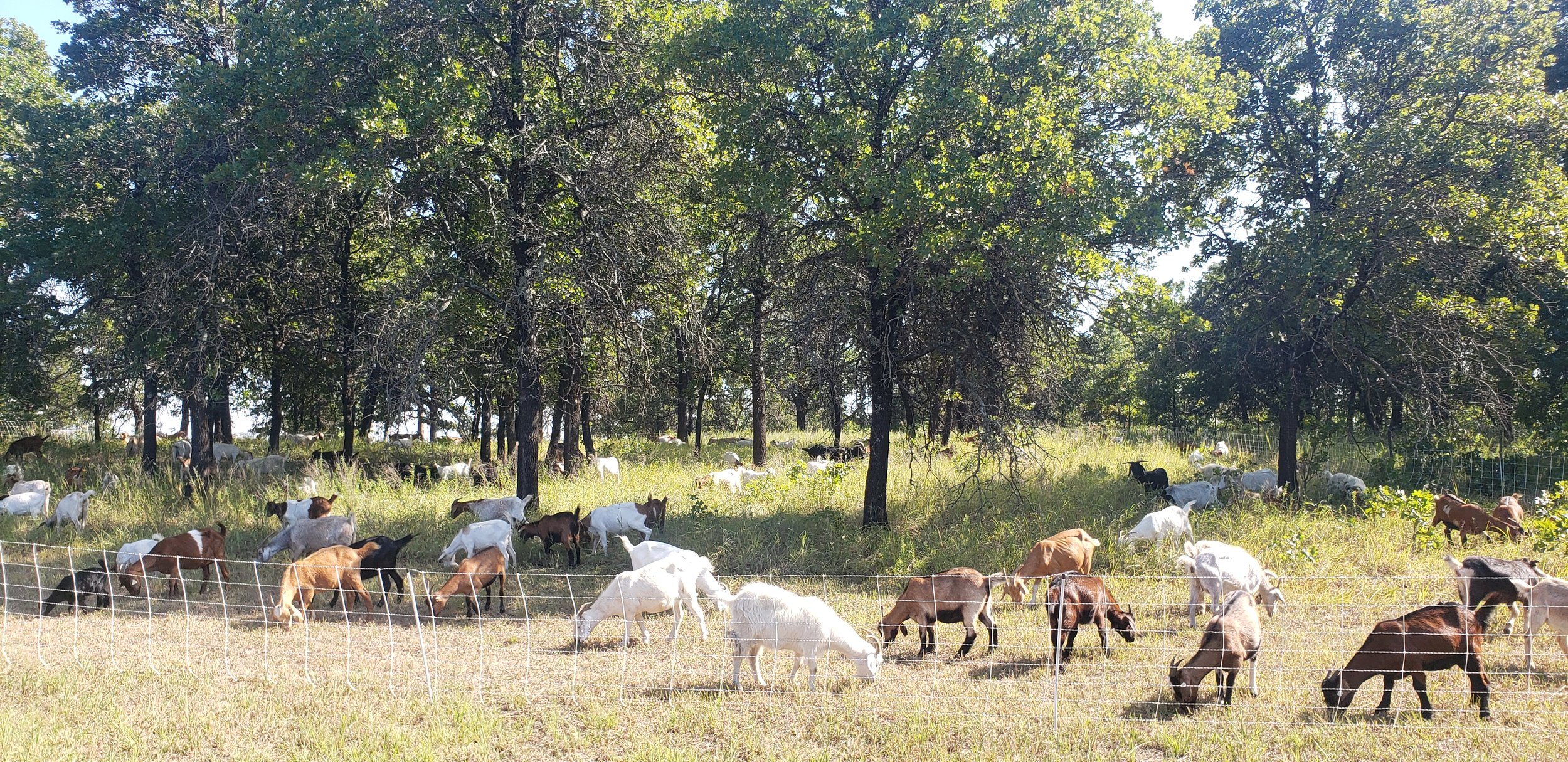
Sustainable land management focused on functionality, education, and fun.
Get the lowdown on how it all works.
Do you need goats?
If you own land with excess brush or invasive plants, goats might be the best answer! Goats are able to access places that equipment cannot. Goats naturally love to climb, play and feed on steep hills and embankments. These are often difficult places for people and machinery to reach. Let our goats do your hard work!
Why Goats?
Goats are natural brush eaters. That’s what they do. They are the perfect tool for areas you wish to preserve but also clean up. They don’t leave toxic chemicals or tire ruts behind and they are quiet as can be on the job. Just all-natural brush management.
What will the goats eat?
Goats will eat most typical Kansas weeds and brush-like plants. many highly invasive plants like Sericea lespedeza, bush honeysuckle and Bradford Pear are all time favorites of the goats. They also eat buckthorn, multi-flora rose, buck brush, poison ivy, blackberry bushes, and most young tree saplings. They typically eat the plant void of all its leaves, girdle bark from tree saplings, and leave nothing but naked stems.
The Entertainment Factor!
In addition to goats being amazingly efficient at clearing brush they are also tremendously entertaining to watch as they do it! From observing each individual goat's personality to seeing their larger friend groups within the herd they provide a unique set of social characteristics that is sure to catch your attention. You’ll get to see playful head-butting, funny goat acrobatics, and sweet and loving behavior from these remarkable creatures as they work to rid your property of brush.
What are goats capable of?
A rule of thumb is that 200 goats will clear approximately one acre of Kansas brush in one day. The goats will remove almost all green leaves and strip bark from sapling trees.
What’s the cost?
Pricing varies greatly depending on the job. Factors such as distance from Restoration Grazing, LLC headquarters, number of acres, density of the brush, and difficulty of the fence set up all contribute to a higher or lower price.
Cost can be mitigated by signing up for multiple grazings.
